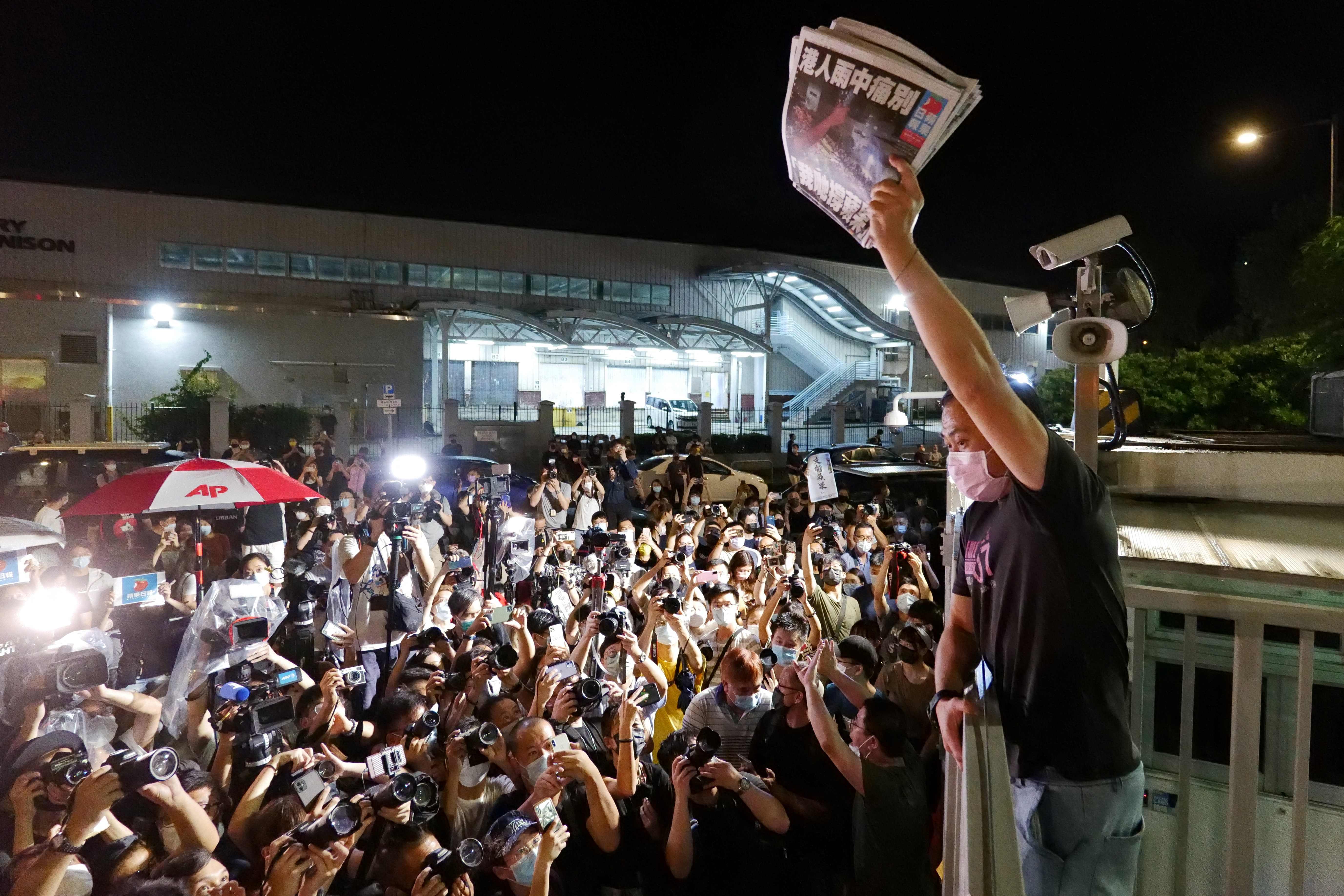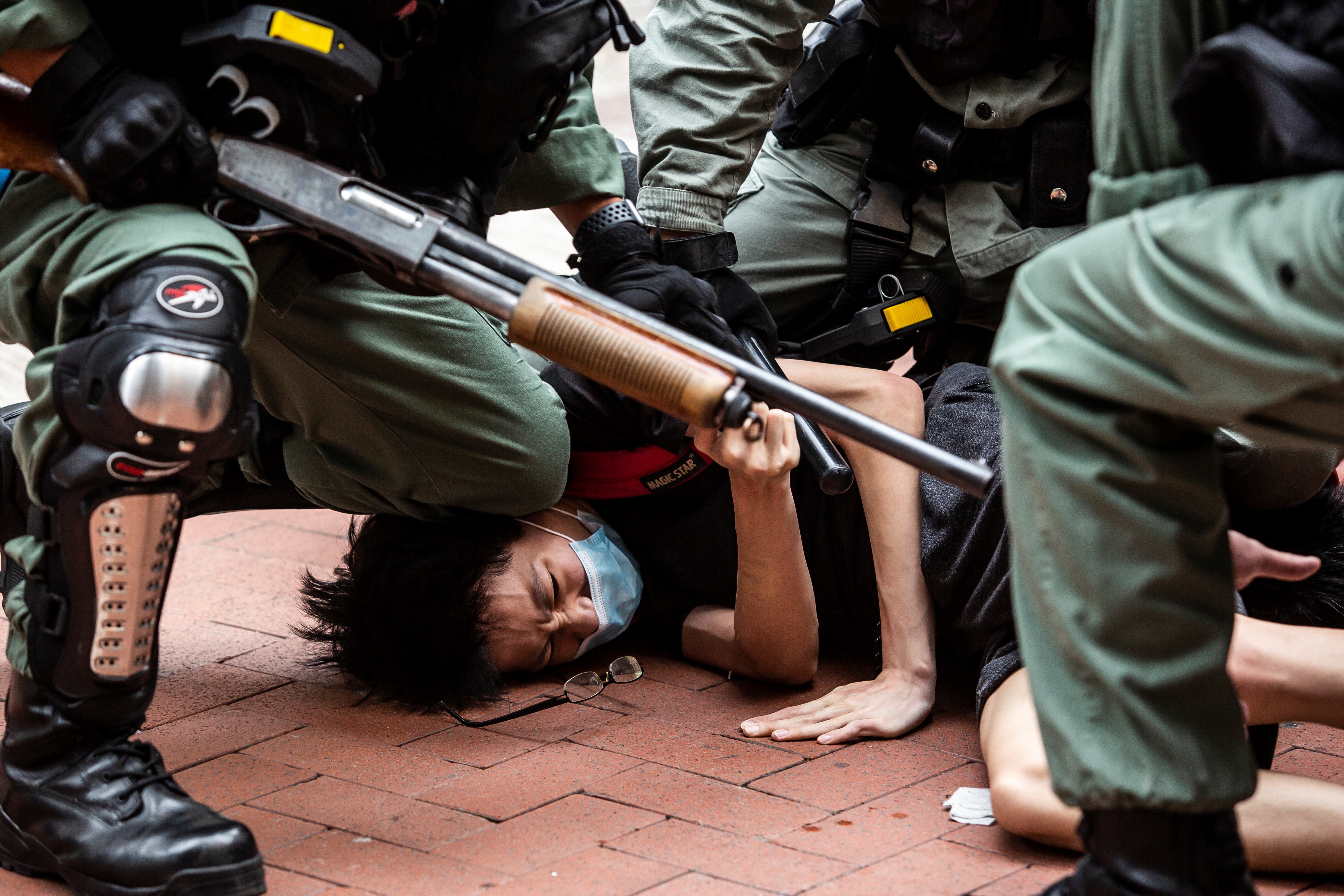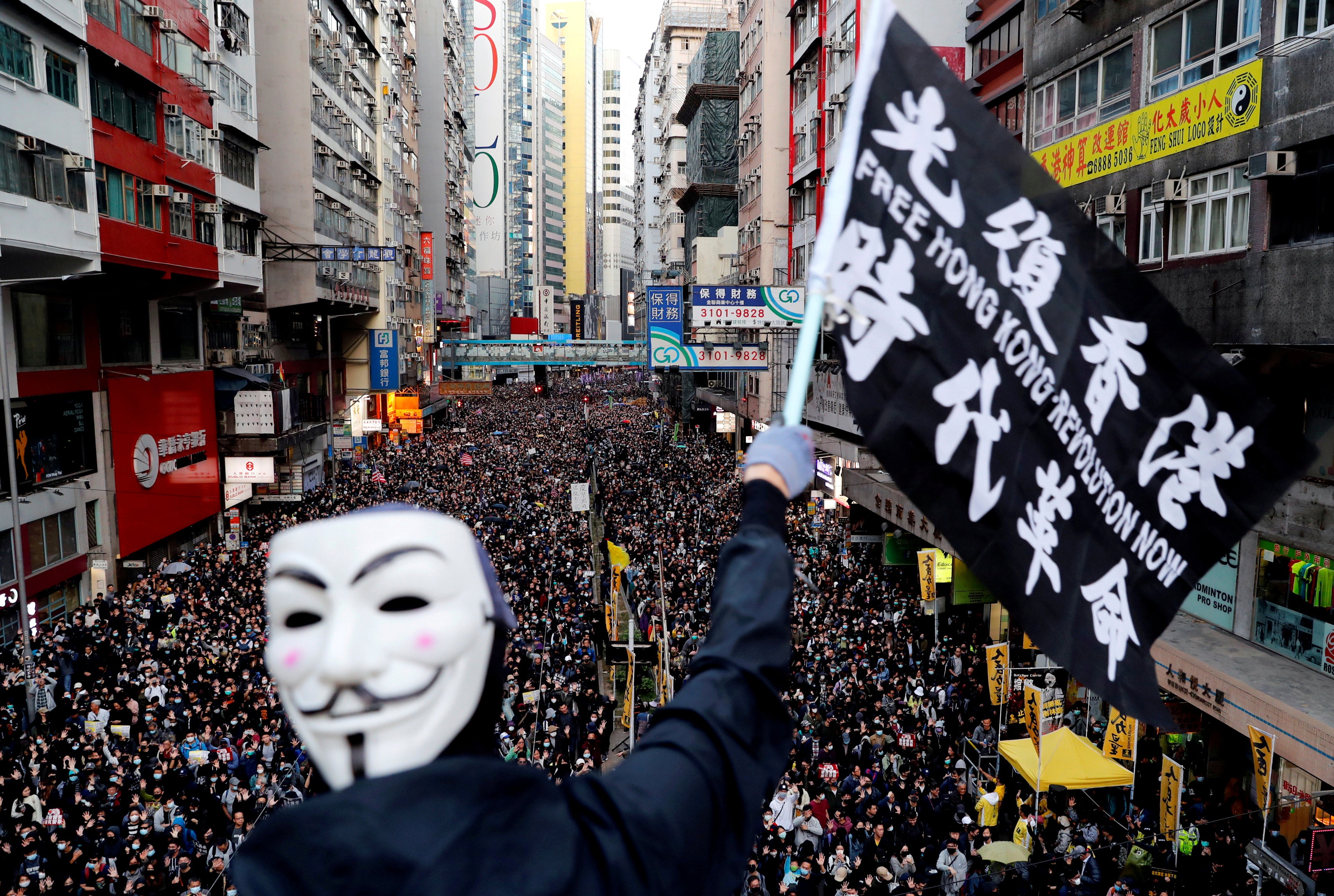Hong Kong’s free press nearly completely dismantled by Beijing, report says
Crackdown on independent media organisations would benefit China’s state-run media, report points out

Your support helps us to tell the story
From reproductive rights to climate change to Big Tech, The Independent is on the ground when the story is developing. Whether it's investigating the financials of Elon Musk's pro-Trump PAC or producing our latest documentary, 'The A Word', which shines a light on the American women fighting for reproductive rights, we know how important it is to parse out the facts from the messaging.
At such a critical moment in US history, we need reporters on the ground. Your donation allows us to keep sending journalists to speak to both sides of the story.
The Independent is trusted by Americans across the entire political spectrum. And unlike many other quality news outlets, we choose not to lock Americans out of our reporting and analysis with paywalls. We believe quality journalism should be available to everyone, paid for by those who can afford it.
Your support makes all the difference.Hong Kong’s free press is in “dire” straits and has been almost completely dismantled by crackdowns from China through the use of “lawfare” to curb journalistic freedom, according to a new report.
The report, titled “In the Firing Line: The Crackdown on Media Freedom in Hong Kong” was published on Tuesday by the UK-based advocacy group Hong Kong Watch (HKW), and interviewed 10 journalists in exile.
It also examined reports from leading Hong Kong press associations to detail Beijing’s crackdown on the press since 2019, when widespread pro-democracy protests began.
The forced closure of pro-democracy media outlets, arrests and detention of journalists, media outlets exercising extensive self-censorship fearing prosecution and the government’s proposal to introduce a “fake news” law have led to the destruction of the free press in the city, it said.
Since the imposition of the National Security Law on 1 July 2020 by a pro-Beijing government in Hong Kong after months of protests, almost all independent and pro-democracy media outlets have been forced to closed, said the 40-page report.
As many as 18 journalists have been arrested under the law and at least 12 journalists and media executives are currently in jail awaiting trial, including Jimmy Lai – a prominent activist and owner of the pro-democracy Apple Daily newspaper.
The report comes as Hong Kong’s Foreign Correspondents’ Club (FCC) cancelled its annual Human Rights Press Awards because it did not “wish unintentionally to violate” the stringent national security law.
The cancellation led to at least three resignations by the FCC’s committee over the decision.

The national security law has since been used to jail members of the pro-democracy opposition and led to the shutting down of pro-democracy newspaper Apple Daily, Stand News and other media organisations.
The report also pointed out how public broadcaster RTHK was stripped of its editorial independence following government intervention.
The broadcaster axed at least 12 programmes, deleted most of its archive from more than a year ago, its Twitter history and banned users from commenting on its Twitter page.
Chris Wong, a former news presenter with the TVB broadcaster, told HKW how his reporting during a November 2019 attack on pro-democracy councillor Andrew Chiu was distorted.
He said Mr Chiu’s ear was bitten off during the attack and had clear evidence with photos and videos.

“The script that the editor provided said that Mr Chiu’s ear fell off naturally, somehow,” Mr Wong said. “Nobody did anything, it was not a bite, and the ear just fell to the floor. The editors did not want to cover violence by pro-Beijing ‘blue’ supporters.”
He said it led to TVB’s reputation being “damaged” along with its journalists and several employees are now living and working under a lot of public criticism.
The report also includes testimonies about how police used violence on journalists while they were covering the protests.
A South China Morning Post photojournalist who covered one pro-democracy protest said “the police came and sprayed teargas directly at us” adding the “hatred that the police showed against the media was shocking.”
Matthew Leung, a reporter for the Ming Pao newspaper during the 2019 protests, said he was shot at least four times with pepper pellets.
“The first time was in Yuen Long about a week after the 21 July mob attack. I was going up an escalator trying to get a top shot, heard a pop and found my safety goggles were sprayed with powder. If I had not been wearing goggles I would have been shot in the eye,” he said.
The report said the closure and censorship of Hong Kong’s free media would benefit pro-Beijing outlets that move in to fill the vacuum of news.
“In the absence of pro-democracy media, it is worth pausing here to consider the implications of the erosion of press freedom and how it creates further space for the pro-Beijing media,” the report said.
The HKW report called on international governments to offer support to fleeing Hong Kong journalists and use Magnitsky-style sanctions to pressure the Hong Kong government.
“The international community must not allow those responsible for these violations to get away with impunity and without consequence,” Benedict Rogers, chief executive of HKW and the report’s author, said.
Join our commenting forum
Join thought-provoking conversations, follow other Independent readers and see their replies
Comments